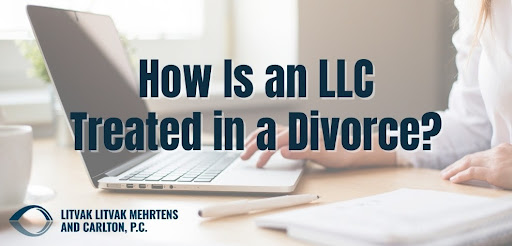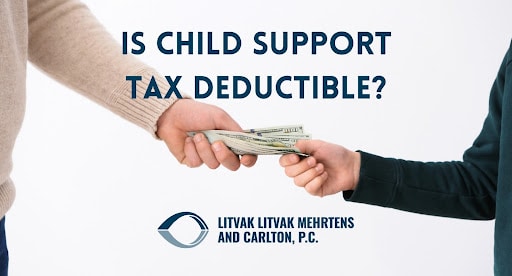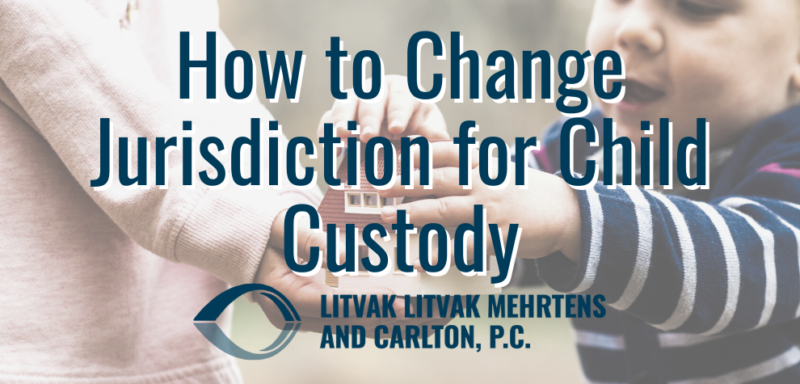Many people consider a prenup in Colorado every year. While it certainly isn’t the most romantic or glamorous topic to cover before marriage, it’s a highly beneficial one. Prenups don’t necessarily mean that the couple will eventually divorce. However, these contracts provide a much-needed safety net for assets and finances. It’s more of a “just in case” provision. However, many of our clients come to us with several questions about these documents. One of the most common questions is, “How long does a prenup last?”
At Litvak Litvak Mehrtens and Carlton, we handle a wide range of family law cases in Denver, including divorce. In handling divorce cases, we also have extensive experience with prenup agreements in Denver. If you’re looking for knowledge, compassion, and experience above all else, we’re here for you. To arrange a consultation with us, please call 303-951-4506 today, or fill out our online intake form.
What Is a Prenup?
Premarital agreements, or prenups, are certainly not the most romantic concept in the world. When entering into a new marriage, you probably don’t want to consider divorce right out of the gate. However, these prenups have many significant benefits, especially for those who know they will have significant separate income or property. They’re not the most common practice before marriage, but they happen more often than many people think.
Generally, couples considering marriage want to address issues regarding property and finances in their prenuptial agreement. Specifically, prenups outline what happens in the event of separation, death, or divorce in Colorado. However, when the court declares a marriage as void, they tend not to enforce the prenup. Depending on the specifics of your situation, it might be wise to consider signing a prenuptial agreement before your marriage.
How Does a Prenup Work?
These signed documents are legally binding. Therefore, we strongly recommend hiring a Colorado prenup lawyer to help draft and ensure its enforceability. Because each state has its own prenup requirements, we recommend reading through Colorado’s prenup laws with your attorney. Below, we list Colorado’s requirements outlined in the Uniform Premarital and Marital Agreements Act.
- The prenup must be written and signed by both parties.
- It is not necessary to establish a “quid pro quo” agreement. In other words, it is possible to draw up a completely one-sided agreement.
- Each party must fairly and reasonably disclose their financial assets and obligations to the other party.
- They must enter into the agreement voluntarily.
- The agreement must contain a notice of all rights waived.
- Colorado courts will not enforce spousal maintenance or attorney fee agreements that they deem unfair at the time of legal separation or divorce.
What Does a Prenup Do?
Prenup agreements address the following issues upon the termination of the marriage or the death of one spouse.
- Spousal maintenance (alimony)
- Property division
- Debt allocation
- Attorney fees
What Does a Prenup Not Do?
Per the Uniform Premarital and Marital Agreements Act, Colorado courts do not enforce the following unfair terms.
- Anything that negatively affects the children’s right to child support
- Modifications to the premise of the dissolution of marriage
- Penalties levied on a spouse for initiating the divorce
- Violations of public policy
- Outlining parenting rights and responsibilities
In terms of parenting rights and responsibilities, the judge must consider the best interests of the children. Even if the parents came to an agreement, the judge is not required to enforce it. Any prohibited or unfair terms are simply struck from the prenup agreement.
How Long Does a Prenup Last?
A prenuptial agreement is a contract, and its duration, like other contracts, is determined by the particular conditions included. A prenuptial agreement between two people usually lasts for the duration of their marriage.
Couples may add a “sunset” clause in their contract. This is a clause in the prenuptial agreement that specifies a predetermined end date for the prenuptial agreement. You can, for example, configure the prenuptial agreement to automatically expire after 5 years. The lifespan of a prenup is unlimited if there is no sunset provision or clear statement about how long it should endure.
Both parties may desire their prenuptial agreement to expire after a specific number of years or to endure eternally. Each couple’s decision is entirely personal and unique.
Couples are increasingly opting for prenuptial agreements. Prenuptial agreements are a common-sense tool for those who marry and do not plan to divorce. Prenuptial agreements can help to build a marriage’s foundation and foster open, honest discussion about the relationship’s expectations.
How Much Does It Cost to Get a Prenup?
Many people believe that drawing up a prenup is an incredibly expensive process. However, this is simply not the case. The average range for prenuptial agreements is only $1,200 to $2,400. Although, this applies to couples whose finances are more straightforward. As with many other types of expenses, the cost of a prenup depends largely on where you live. Additionally, other factors that affect the cost include what you include in the prenup, how contentious the negotiations are, and the lawyer you hire.
The more you argue or negotiate with your partner, the more you’re likely to end up paying your attorney. Thus, if you want to avoid expensive legal fees, you can certainly discuss as much as possible with your spouse-to-be beforehand.
How Long Does It Take to Get a Prenup?
The process of creating a prenuptial agreement should take between two and three weeks. You may cut that time in half if you’ve already done your homework and know exactly what problems you want addressed in a prenuptial agreement, as well as create asset and debt itemized lists for each potential spouse.
Again, this is a general expectation. Each situation varies greatly, so we recommend speaking with a trusted attorney before setting your expectations.
How to Ask for a Prenup
There are methods to talk about a prenuptial agreement that will open the lines of communication and bring the two of you closer together, even if it isn’t an easy topic. By defining expectations, a prenuptial agreement can greatly help prevent conflicts during the marriage.
- Explain your reasoning. Assure your partner that the prenuptial agreement isn’t meant to be a one-sided document. While your fiancé may not have considerable separate property before the marriage, he or she has the right to demand reciprocity during the marriage. Your partner may request that a certain amount of money be put into a joint checking or retirement account in their name. Encourage your fiancé to make suggestions, and do your best to accommodate them during the negotiating process.
- Bring it up long before the wedding. Waiting until after the wedding invitations have been sent out to provide your fiancé with a prenuptial agreement would most certainly destroy trust and good will, and may even result in the engagement being called off. You should bring up the subject before you become engaged, so your spouse has time to adjust to the notion and consult with an attorney without feeling rushed.
- Collaborate. Negotiating prenuptial agreements should not be based on one party leaving nothing on the table for the other. If you approach the prenuptial agreement as a problem that you and your fiancé must solve together, your fiancé will feel more empowered rather than as if something is being forced onto them. Rather than focusing on safeguarding your own interests, attempt to come up with conditions that satisfy both of your requirements.
How to Get a Prenup Thrown Out
A judge may invalidate a prenuptial agreement if it contains an invalid clause, makes irrational assertions, or shows that a spouse signed the agreement under duress. Although the contract is legally enforceable, neither spouse should sign it under duress, coercion, or when the conditions are unjust. Below, we list some reasons why a judge might throw out a prenup.
- Unfair provisions
- Lack of assets
- Signing under a stressful situation
- Fraudulent agreements
- Violations of state laws
- Lack of legal representation
How to Find a Prenup Lawyer in Denver
A couple intending to marry is not thinking about divorce. However, arranging for the worst-case scenario before marriage may save a lot of legal headaches down the line if the marriage fails. You can accomplish this quickly by consulting with a Denver prenup lawyer. At Litvak Litvak Mehrtens and Carlton, we’re here to help your marriage start off on the right foot. For more information, or to arrange a consultation, please call 303-951-4506 today.






